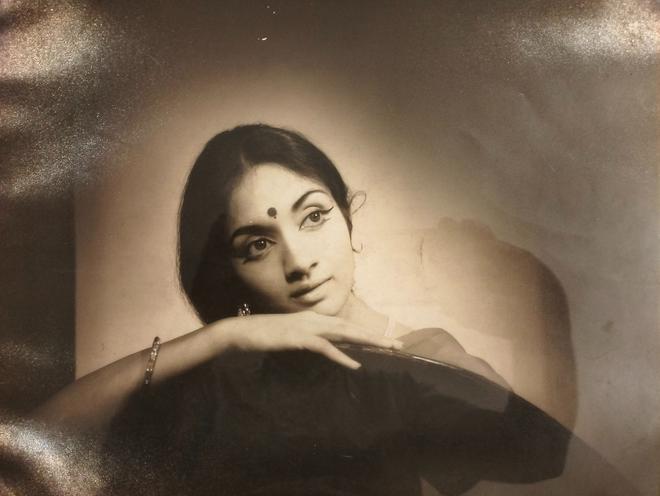The latest round of fighting between Israelis and Palestinians erupted on October 7, 2023, on the second day of Yom Kippur, the Jewish period of atonement and prayer. About 4,000 km away, the violence triggered a surge of memories in the residence of the Jha family in the capital’s Golf Links neighbourhood; half a century ago, their lives had been permanently changed by the 1973 Yom Kippur War, which had pitted Israel against a coalition of Arab States led by Syria and Egypt.
Israel-Hamas war, Day 22 updates
The 1973 war had not yet broken out when Usha Chettur, the prominent Odissi exponent and wife of upcoming journalist Prem Shankar Jha, decided to travel to Syria. Chettur hailed from Kerala and had married Mr. Jha five years earlier. The two made a notable couple, successfully navigating the cultural scene of New Delhi in the late 1960s and the early 1970s.

Chettur flew in from Delhi to Damascus after a stopover in Beirut. Her visit was part of the cultural diplomacy of the Indian government under Prime Minister Indira Gandhi, which was close to Syria and the rest of the Arab nationalist governments of the region. After a successful tour, Chettur was supposed to fly back on October 7. However, history changed a day earlier.
Collision with history
In a surprise attack on October 6, Egypt and Syria made their moves to reclaim the Sinai peninsula and the Golan Heights, which had both been lost to Israel in the 1967 war. The initial three days of the war inflicted heavy losses on Israel, and the invincibility of the Israeli forces took a knock as the Arab forces overran Israeli defences, including the famous Bar Lev line that fell to the Egyptian attack across the Sinai.
The beginning of the war and Chettur’s stay in Syria coincided briefly, as she had planned to return on October 7. However, guided by some individuals, she delayed her departure by a few days as there were difficulties in catching a flight from Beirut. In the meantime, some of the local notables of Damascus decided to organise a coffee get-together on October 9 to honour the dancer.
That afternoon, Chettur headed for the party, whose attendees were mainly the notable women of Damascus. As the interaction got underway, two Israeli fighter jets carrying bombs took off from an airbase inside Israeli territory; within minutes, they had reached the skies above Damascus. Already, there were expectations that the Israelis were preparing to strike deep inside Syria, and as a result, there were heightened preparations around the headquarters of the Syrian air force.
Deadly shrapnel
Remembering those days, veteran journalist Prem Shankar Jha says that he was in Delhi during this time as the war broke out, and there was concern at home about the regional situation. Before becoming a journalist in Delhi during the late 1960s, Mr. Jha had worked at the United Nations Development Programme, and had been posted in Damascus. “I was familiar with Damascus and knew that the Air Force building was the tallest in the city, where most of the houses were not allowed to go beyond the second or third floors, and as a result, it was expected to be hit in a war scenario,” said Mr. Jha, recollecting Damascus of 1973.
Those two Israeli fighter jets probably flew over Damascus seeking such a prime target, but they had to change their plans as the Syrians activated SAM missiles that were supplied by the Soviet Union. Given the situation, both the aircraft dropped their explosive payloads and flew back into Israel to escape the deadly SAM missiles. One of the bombs dropped by the Israelis fell on a lawn adjacent to the hall where Chettur was being hosted by her Syrian friends. Several bits of deadly shrapnel flew towards the hall, killing her instantaneously.
‘Haunted, but not bitter’
Her mortal remains were flown back to Delhi shortly thereafter by the Syrian government, which expressed deep remorse to the Jha family, including her father-in-law, the former Foreign Secretary Chandra Shekhar Jha. “One look at her and I knew that she didn’t suffer, given the severity of the injury,” her husband said.
The Yom Kippur War of 1973 changed the course of history in West Asia, as it brought the region to the brink of a global conflict and showed the need for dialogue. The war would ultimately lead to the Camp David accord of March 1979. Mr. Jha went back to Syria many years later, though he never visited Israel. He harbours no bitterness for the tragic personal loss.
“For many years, the incident haunted me. But I am not bitter. She was caught in a war and the pilots of the fighter jets were young Israelis who were trying to save themselves,” he said.







